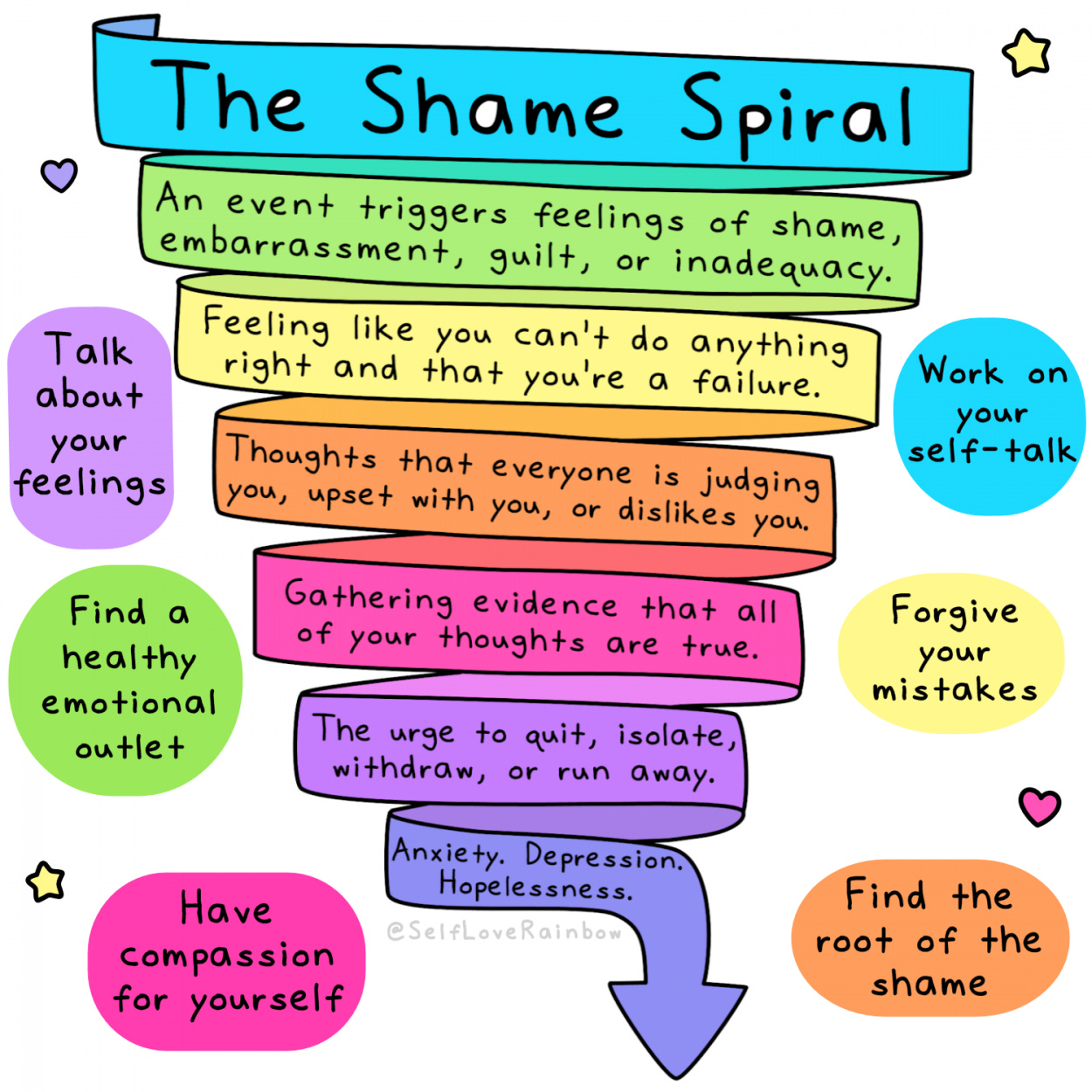I’m not a therapist.
My family jokes I am one for being such a “good listener” but I don’t find it amusing.
Listening is one of many skills I share with a therapist, but nothing further. A therapist, on the other hand, is a licensed mental health professional. An individual who can ask how your week’s been going and seamlessly transition to the fear of your husband dying in his sleep as if the two were directly correlated.
If there’s anything I’ve learned from therapy over the past 4 months, it’s that the right therapist will snap you into reality. They’ll lift the veil from over your face and suddenly, you’ll realize for the past 10 (or 20 or 30 years) you’ve walked around with a bag of boulders superglued to your back. Who knew one could be accustomed to that kind of weight?
Despite my clear lack of qualifications, I found myself leading a group therapy of sorts at a behavioral center (psych ward, mental hospital) one hot afternoon with my fellow patients.
Staff were sparse on the weekends, but the Holy Spirit had other plans.
//
“C’mon guys, we’re having our own Group!” a patient friend of mine, Molly, announced as she passed out a worksheet to some nearby women zoning out in front of the TV. ‘Group’ was short for ‘Group Therapy’, a treatment activity in the Day Room with an actual therapist after lunch from Monday to Friday.
It was Saturday, which meant as 1 o’clock rolled around and we walked from the cafeteria back to the Harmony B Unit, patients could partake in any activity we pleased: coloring, basketball, TV, calling loved ones, pacing around aimlessly—anything except leaving the premises or being in our rooms. Rooms were always locked during the day.
I had just finished a satisfying round of shooting hoops from the basketball court when I trotted back inside to catch my breath. I noticed dozens of worksheets scattered across a table in the middle of the Day Room, next to a green bin filled with frayed crayons and markers. From the corner of my eye, a worksheet titled ‘The Shame Spiral’ in playful letters caught my attention, so I picked it up
The spiraling downward motion felt eerily familiar, resembling the same spiral I had experienced when falling in and out of a psychotic state.
How I built up the courage to invite several women to go over the worksheet with me, I couldn’t tell you. I just remember how terrifying it was to be caught in the violent turbulence of it all and wanted nothing more than to guide others out of it. Besides, I may have been through hell by being here, but surely I wasn’t the only one who’d had their whole world turned upside down.
Any authority I could have claimed to lead this group of women was nonexistent. But somehow, the Holy Spirit gave me a boldness I hadn’t had access to before. Five or so of us huddled around the table, and one by one, we each took turns to read a section of the Shame Spiral.
The content wasn’t revolutionary. Talk about your feelings. Have compassion for yourself. Forgive your mistakes. Yet amongst these women, chains were breaking. We were all unloading our bags of boulders for the first time.
We continued our discussion when suddenly, a new patient walked in.
Many patients who entered the Harmony B Unit made their presence known. They huffed and puffed with frustration, believing they didn’t deserve to be there.
Kaila, though, she was different.
Her mouth was dry. Her skin was supple. There were large, violent scabs across her forearms and you could tell they were only a few days old.
She was so frail she latched onto one of the staff members’ arms as she walked in, hobbling her way to the Day Room.
“Would you like to join us?” Molly waved the new patient over. Kaila nodded quietly, pulled up a chair, and laid her head down.
The group grew silent. She didn’t do much talking at the table then, but she listened. She let the truth of our words wash over her.
We eventually finished our group discussion and everyone began to leave the table. But as I pulled out of my chair, Kaila locked eyes with me. Her glance was so subtle I’m surprised I even noticed.
“I jumped out of a car,” she whispered. I didn’t hear her at first, her voice was weak. I leaned in closer, letting her hot breath hit my face.
“I jumped out of a car,” she spoke again, this time quivering.
Slowly, I sat back down.
//
Kaila tells me she’s a first-generation American from Vietnam with an abusive father. A few days prior, she said it was as if the car door begged her to open it wide on the highway. She leaped in a desperate attempt to escape.
“It sounds like you reached the end of the Shame Spiral,” I told her as I reached for her hands.
“I was all out of hope,” she responded.
Shame, it has no regard for who or what it devours. Here was a beautiful girl in front of me who believed jumping out of a speeding vehicle was the answer to all her torment. If I were a therapist, this would be the part where I’d have to hold back the tears to maintain professionalism.
But I’m no therapist. I’m a patient in a mental hospital who’s just as broken as she is. So I let the tears fall and held her close.
Before we knew it, we’d been sitting, talking for hours and the digital clock above our table read 6:15—it was time for dinner. However, this evening was different. Rather than eat in the cafeteria, we were instructed to eat on the Unit.
Kaila and I both picked up our box meals consisting of shredded chicken, mashed potatoes, and collard greens, returning to the same table to continue our conversation. As we talked, Kaila picked at her food with a fork, refusing to take a bite.
“You’ll feel better if you eat,” I encouraged her. That’s when I noticed her lips were chapped. “Also, you seem a bit dehydrated. Mind if I grab you some ice-water? You can sip it slow, like hot tea.”
For some reason, the logic made sense to her and she agreed. As soon as she took her first sip, her senses were heightened. She hadn’t realized how long it had been since she had properly nourished herself, to the point where she couldn’t remember the sensation of being hydrated and indulging in a hot meal.
Shame had no place at the table this evening.
//
“Would you like to do a Bible study with me?”
I waited for a response with my breath held. Was this too tall of an order? Would she only say yes out of obligation? Or worse, say no?
It was 6 am the next day. Many of the patients were still sleeping in their rooms but from a rough night of no sleep, Kaila and I were up early.
Thankfully, she said yes.
We walked over to the Day Room, sat down at the same table we ate at the evening prior, and I opened my tattered Bible to read a passage from Matthew Chapter 25:
Come you who are blessed by my Father, inherit the kingdom prepared for you from the foundation of the world. For I was hungry and you gave me food, I was thirsty and you gave me drink, I was a stranger and you welcomed me, I was sick and you visited me, I was in prison and you came to me.
Kaila and I were in two kinds of prisons.
The physical kind, having both been torn away from everything we knew, thrown into a mental facility to prove to the outside world we are stable. And the spiritual kind, where Shame kept us captive. I quietly hoped Kaila would realize she didn’t have to live in either prison any longer.
But the truth is, as much as I believed I came to Kaila in her prison(s) by taking on a “therapist” role with her over the past 12 hours, I was indeed the stranger.
I was hungry, thirsty, and sick.
She came to me.
“Thank you,” she mouthed. She then sipped her ice-water hot tea and laid her head back down.







Such a beautiful story Kathy. The Lord bless you for being willing to play the ‘therapist’ role and mirroring His heart of compassion and kindness.
What a beautiful story Kathy. She will remember the kindness and compassion of our Lord Jesus forever because of your presence with her. How beautiful that the Holy Spirit was with both of you in such a place as a behavioral hospital. Thank you so much for sharing♥️